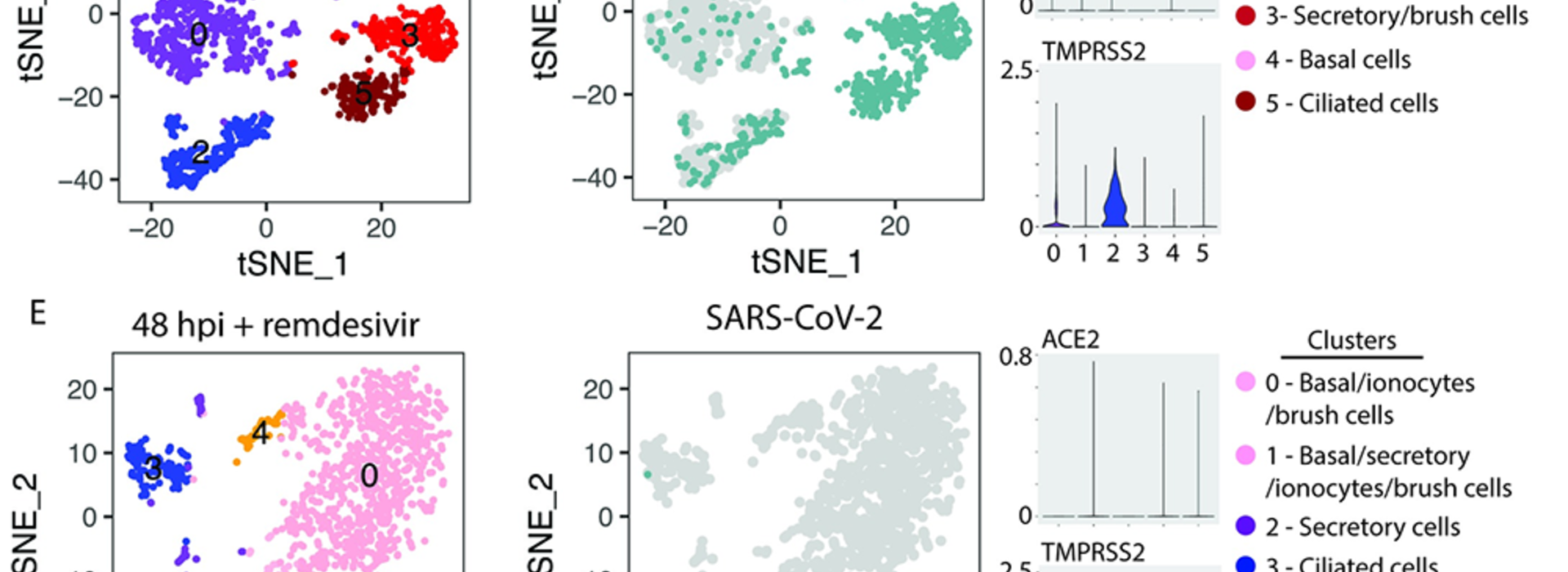
Scientists uncover four new facts about early SARS-CoV-2 infections
University of Minnesota Medical School study points to effectiveness of remdesivir
MINNEAPOLIS/ST.PAUL (02/10/2021) — University of Minnesota Medical School researchers studied SARS-CoV-2 infections at individual cellular levels and made four major discoveries about the virus, including one that validates the effectiveness of remdesivir – an FDA-approved antiviral drug – as a form of treatment for severe COVID-19 disease.
“Since the start of the COVID-19 pandemic, the way that each individual responds differently to the infection has been closely studied. In our new study, we examined variations in the way individual cells reacted differently to the coronavirus and responded to antiviral treatment,” said Ryan Langlois, PhD, senior author of the study, associate professor in the Department of Microbiology and Immunology and member of the Center for Immunology at the U of M Medical School.
The study, published in the journal PLOS Pathogens, found that:
- SARS-CoV-2 primarily infects two types of cells in the upper respiratory tract – ciliated cells and goblet cells;
- Goblet cells are the main producer of pro-inflammatory responses, which are common in severe COVID-19 cases;
- Remdesivir, however, is effective in blocking virus replication in all cell types in the upper respiratory tract;
- SARS-CoV-2 is highly effective at evading initial detection by the innate immune system, but when detected, virus replication is efficiently blunted by antiviral responses.
The diverse population of cells lining the human airway, called “airway epithelium,” is the very first line of defense against COVID-19 and can set the stage for immune responses that either protect against disease or cause damage. Using a cutting-edge technique that comprehensively measures reactions by single cells, Langlois’ team discovered that SARS-CoV-2 is capable of infecting most cell types in the human airway and identified a key gene required for viral entry.
“As expected, we observed a large amount of variation between different cells in the antiviral immune response, paving the way for future studies that will better characterize why some individuals are relatively protected against severe COVID-19 disease,” Langlois said.
The study is funded by the National Institutes of Health (R01 AI148669-01) and the U of M Medical School.
###
About the University of Minnesota Medical School
The University of Minnesota Medical School is at the forefront of learning and discovery, transforming medical care and educating the next generation of physicians. Our graduates and faculty produce high-impact biomedical research and advance the practice of medicine. Visit med.umn.edu to learn how the University of Minnesota is innovating all aspects of medicine.
For media requests, please contact:
Angel Mendez
Communications Manager
University of Minnesota Medical School
mende434@umn.edu
785-741-5267